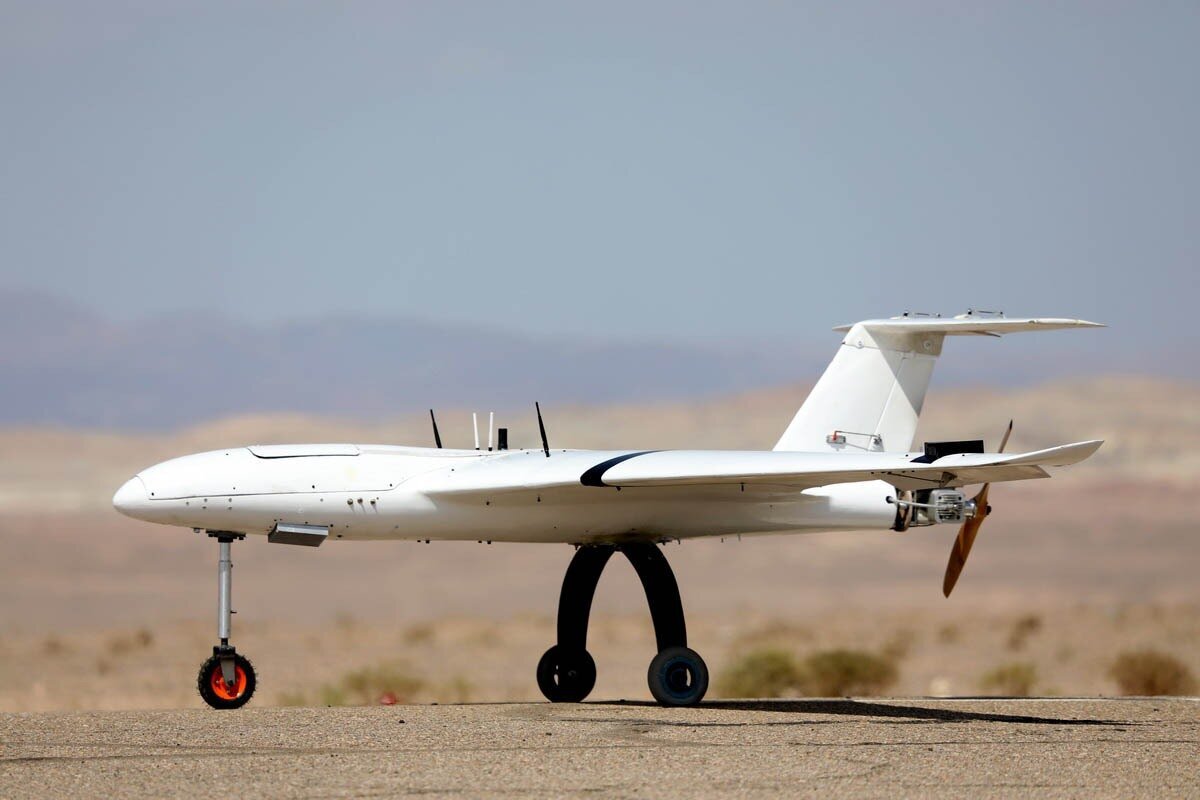IRGC deploys Shahed-131 kamikaze and Ababil-5 combat UAVs

TEHRAN- The Islamic Revolution Guard Corps (IRGC) Ground Force has bolstered its capabilities with the integration of Shahed-131 kamikaze drones and Ababil-5 combat UAVs.
The act aimed at enhancing surveillance capabilities and countering threats posed by adversaries and terrorist organizations.
During the Great Prophet 15 military exercise in January 2021, the IRGC Aerospace Force unveiled footage showcasing the successful engagement of various targets by the Shahed-131 drone. This marked the first public demonstration of the drone's effectiveness in combat scenarios.
The Shahed-131 drone further demonstrated its operational prowess during the Great Prophet 17 exercise, where it executed precision strikes on a simulated facility representing the Dimona nuclear power plant of the Israeli regime.
Measuring 2.6 meters in length and 2.2 meters in width, with a weight of 135 kilograms and a range of 900 kilometers, the Shahed-131 UAV distinguishes itself with its unique design features.
Notably, the arrangement of end blocks differs between the Shahed-131 and Shahed-136 variants, with the former featuring blocks solely at the top of its body.
Previously, the IRGC Aerospace Force conducted multiple operations targeting separatist groups' positions in the Iraqi Kurdistan region, underscoring the utility of unmanned aerial vehicles in regional security operations.
The unveiling of the Ababil-5 UAV during the Army Day parade on April 18, 2022, highlighted Iran's continued advancements in drone technology.
Developed by the Defense Ministry's Air Industries Organization (AIO), the Ababil-5 shares design elements with its predecessors in the Ababil UAV family, including the Ababil 3 and Mohajer 6 models. However, it boasts larger wings, enabling greater payload capacity, and features retractable front landing gear to enhance its surveillance capabilities.
Established in 2005 as the UAV management division within the IRGC Ground Force's intelligence department, the UAV complex evolved into an independent unit two years later, operating in collaboration with the IRGC Aerospace Force. The unit's inaugural base was established in Ahvaz, southwest Iran, with subsequent expansions and advancements in operational capabilities over the years.
